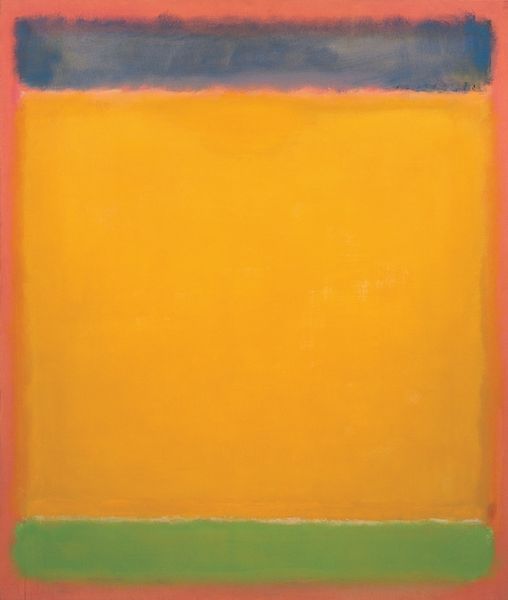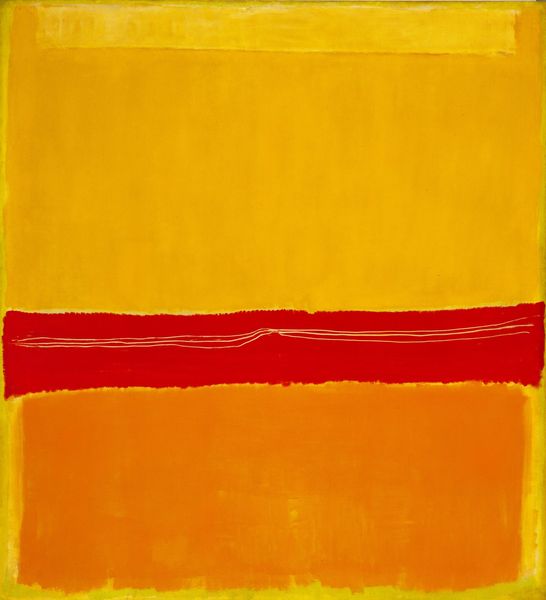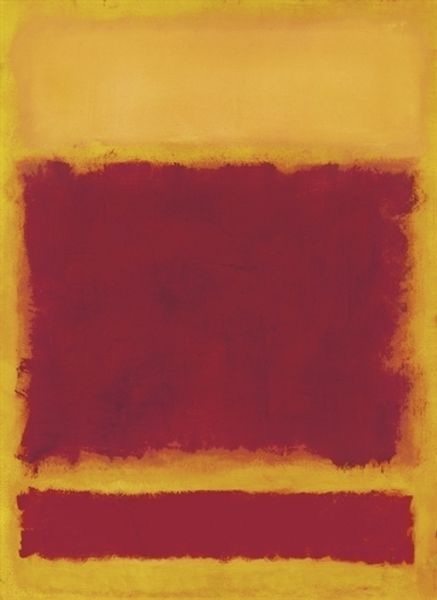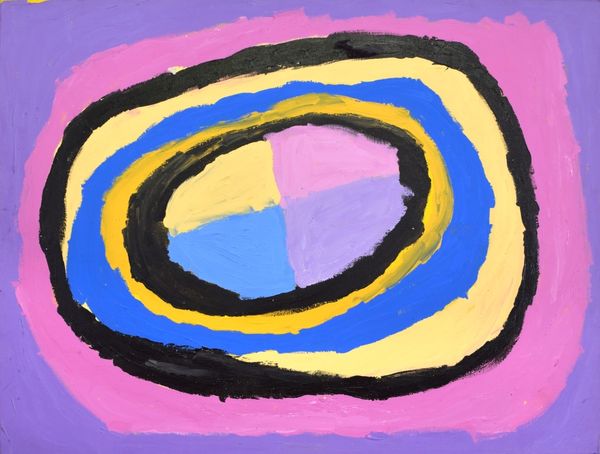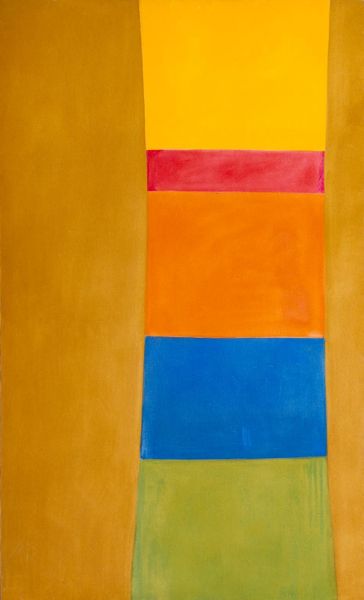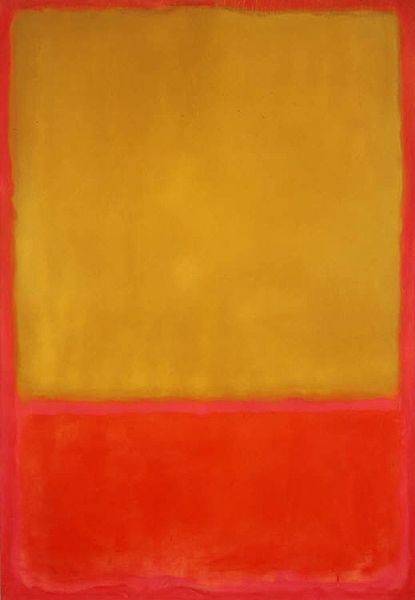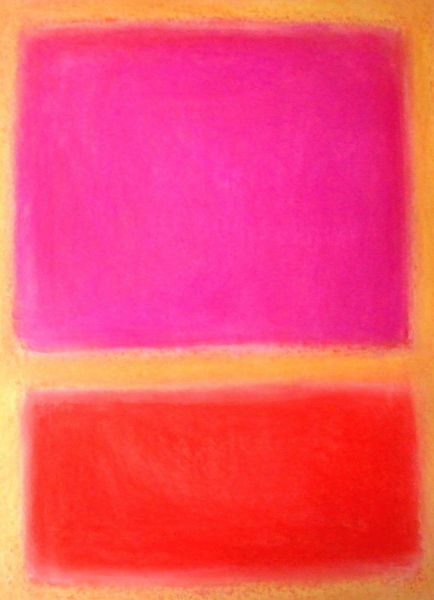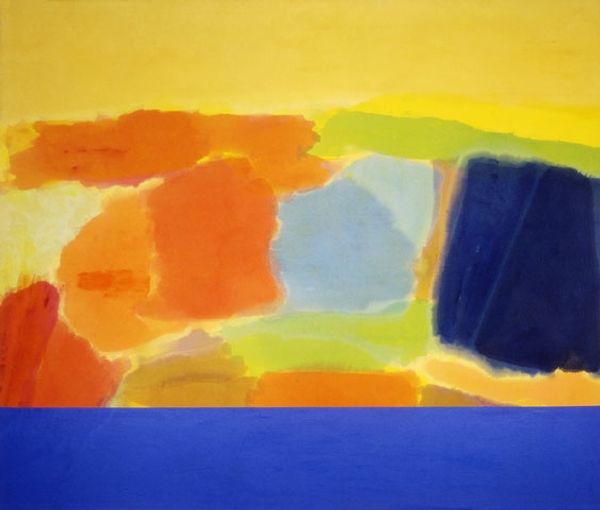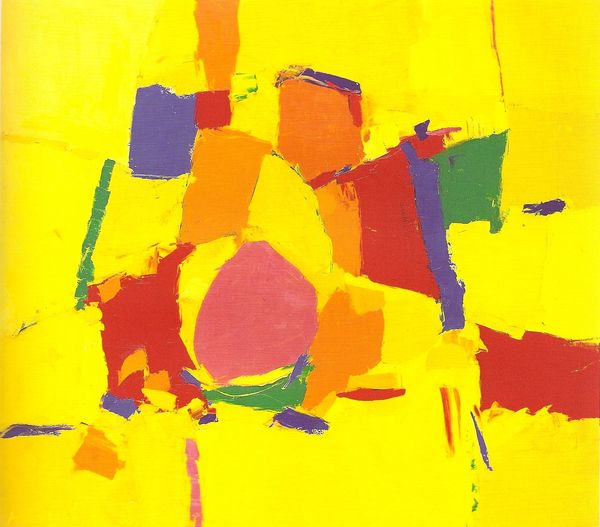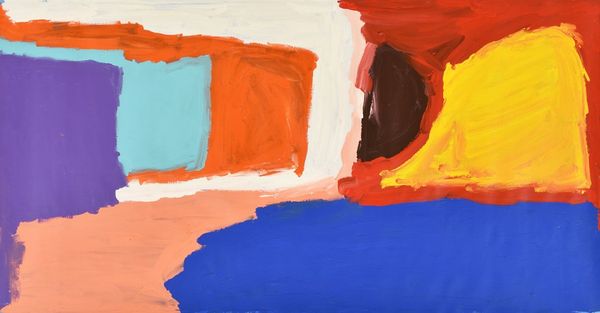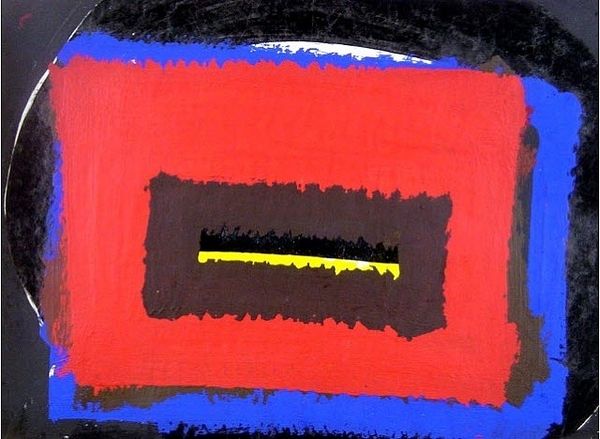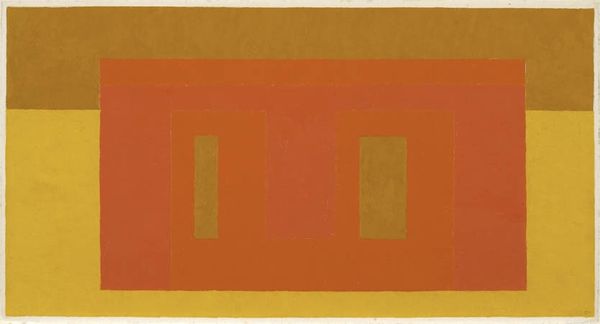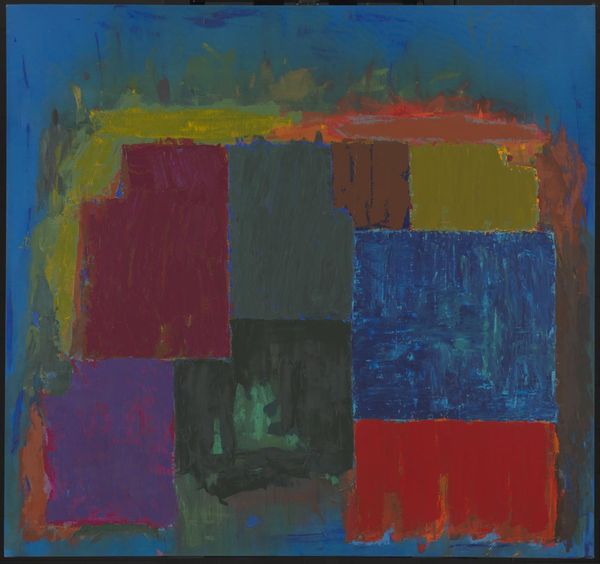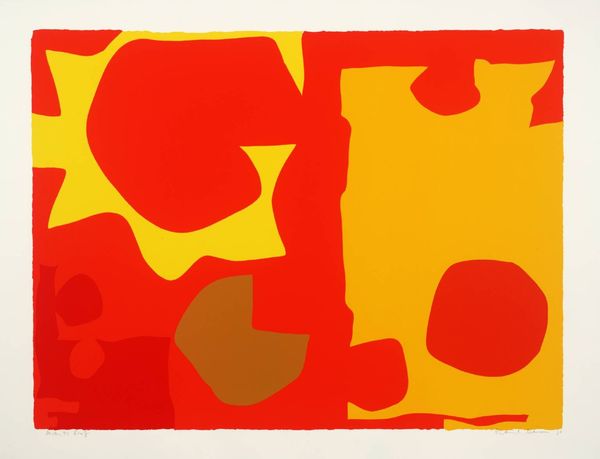
acrylic-paint
#
abstract-expressionism
#
pop art
#
colour-field-painting
#
acrylic-paint
#
geometric
#
geometric-abstraction
#
abstraction
#
pop-art
Copyright: Al Held,Fair Use
Curator: Al Held created this "Untitled" piece in 1960, a striking example of acrylic-on-canvas color field painting and abstract expressionism. What's your initial reaction to this work? Editor: Immediately, I'm struck by its raw energy and its boldness. It feels almost defiant with those bright, almost clashing colors battling for space. I'm wondering about the context of the '60s and the social movements stirring—does this resonate with a certain counter-cultural energy? Curator: That's an interesting take! The repeated rectangle motif creates a sense of depth, pulling you in, like portals nested within each other. In many cultures, the rectangle symbolizes structure and the material world; is Held playing with those inherent associations, presenting us with something elemental yet disruptive? Editor: Disruption, absolutely! Held challenges the boundaries of formalism. While appearing purely abstract, the layers of color evoke boundaries, borders, the idea of containment… And in the backdrop of the Cold War, with very rigid social, racial, and gender constructs, that tension becomes palpable, doesn’t it? The blurring, imprecise lines resist that imposed order. Curator: Precisely! There's an almost primal quality to the color choices too: the vibrant reds and yellows speak to passion, anger, and, potentially, revelation. Consider how color is often deployed symbolically to communicate emotional truths. Do you see that at play here? Editor: Absolutely, it evokes a visceral response, but there's also a flattening effect at play that recalls early pop art. Are we meant to read this simply at surface level or search for hidden meanings? Perhaps that very tension IS the point. To what extent can color in abstraction represent broader social dynamics of a time? Curator: Held pushes that question to the forefront. This piece captures a certain turning point in artistic expression, a break away from pure formalism towards engaging the wider sociopolitical climate using abstraction as an outlet. Editor: Well, it certainly sparked a fascinating discourse on the dynamics of containment and liberation during a pivotal decade. It proves abstraction need not exist in a vacuum; instead, it could capture the tensions inherent within its context. Curator: Indeed, an excellent perspective which illuminates a fuller understanding of Held's impactful work.
Comments
No comments
Be the first to comment and join the conversation on the ultimate creative platform.
